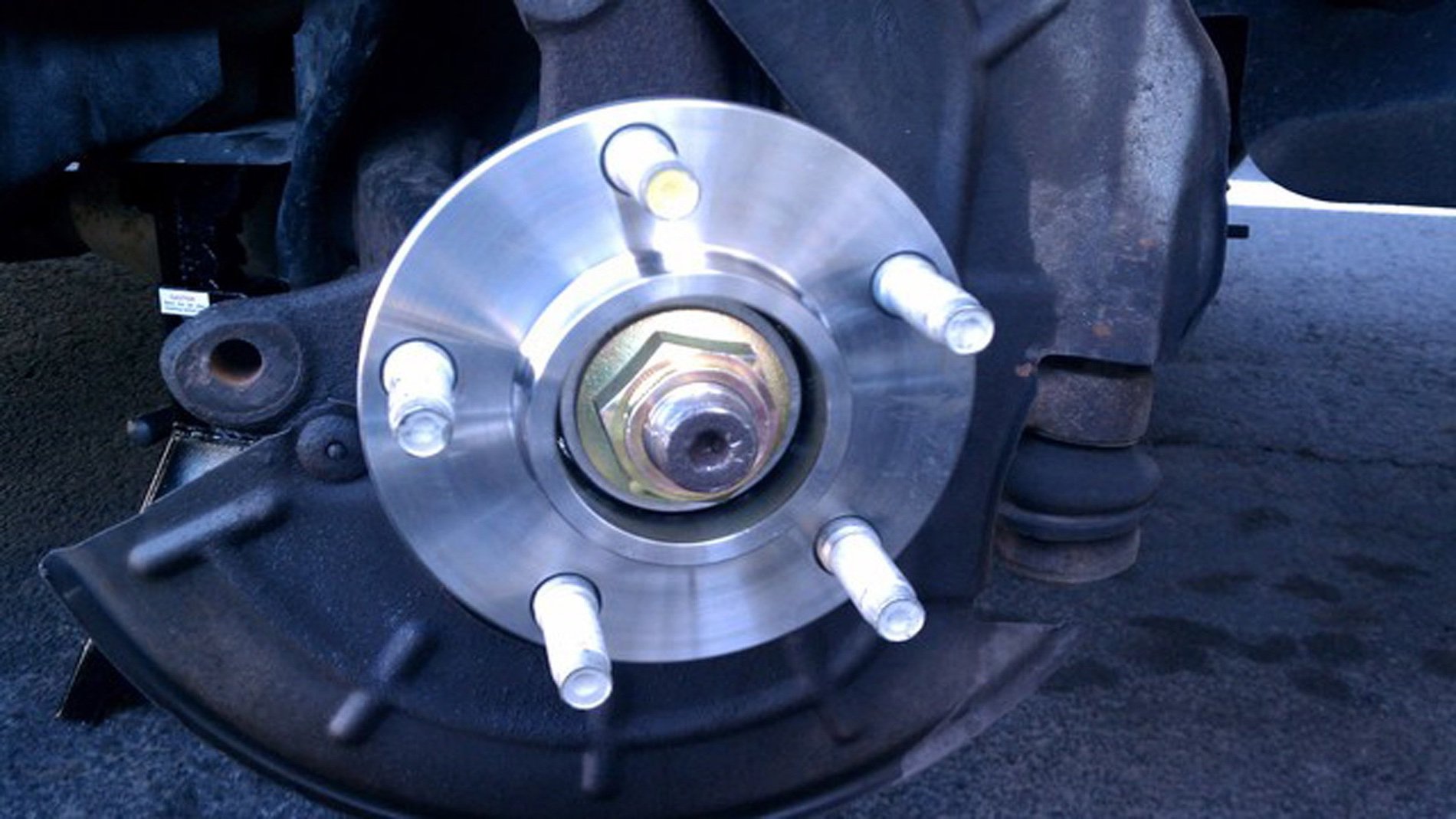Key Points:
- Wheel bearings handle the forces created as you steer, accelerate, and brake your Mustang.
- Newer Mustangs tend to have sealed bearings that can last up to 100,000 miles, but older models likely have tapered roller bearings that need to be serviced or replaced every 25,000 or 30,000 miles.
- The signs your bearings are wearing out include acceleration issues or a lack of power, steering problems, grinding or roaring sounds while you drive, uneven wear on the treads of your tires, and braking problems in models new enough for the ABS sensor to be integrated into the wheel hub.
Signs It’s Time to Replace Your Wheel Bearings
Your Mustang’s wheel bearings are responsible for handling the load created by your vehicle as you drive. Accelerating, cornering, and braking all put strain on these components, and eventually cause them to fail—unless you replace them before that happens.
Below, we’ll walk you through why replacing your bearings is important, when to do it to avoid performance issues with your pony car, and a list of signs you can use to identify bearings that may have started to fail. By the time we’re finished, you should have everything you need to spot the signs of a bearing that’s on its way out.
Via Mustang Forums.
Do You Actually Have to Replace Wheel Bearings?
Only if you don’t care about trivial things like, oh, I don’t know—comfort and safety. While it’s tempting to put off replacing common wear components in your car, doing so can come with major consequences.
For starters, driving on damaged or worn-out bearings can damage other parts of your car. Bearings that don’t work properly lead to your wheels turning more roughly or at an uneven rate, which can put strain on the entire wheel hub—plus your CV joint, axle, and transmission.
When Should You Replace the Bearings in Your Mustang?
The average lifespan of the wheel bearings in your Ford Mustang will depend on exactly what model you have and how old it is. While modern Mustangs use sealed bearings that can last for 85,000 to 100,000 miles, owners of classic Mustangs may have models that use tapered roller bearings instead. This type of bearing can wear out and need replacement after 25,000 to 30,000 miles, since it’s easier for the bearing’s lubricant to become contaminated by dirt, dust, and other debris kicked up from the road while you drive.
Your Bearings Might Be About to Fail If:
Via Road & Track.
Your ‘Stang Isn’t Accelerating Properly
When your Mustang’s bearings wear out, the vehicle will likely start to wobble at higher speeds—creating friction that makes the engine work harder to accelerate. So if your pony car doesn’t seem to have the power it once did, your wheel bearings might be to blame.
You Notice Steering Problems
As a result of that wobbling we just mentioned, you might feel the steering wheel on your ‘Stang vibrate when driving at speed—but this isn’t the only steering problem you could encounter. Since your bearings likely won’t wear down at exactly the same rate, your car’s wheels will turn at different speeds when the problem with one or more bearings gets bad enough—which will make your car pull to one side and cause cornering issues.
Grinding or Roaring Noises
If your Mustang has a grinding sound while driving, chances are it’s either your bearings or brakes that are the culprit. This normally occurs when the lubricant in your bearings becomes contaminated to the point where it can no longer function properly, allowing the bearings to rub against each other.
Your Tires Are Wearing Down Unevenly
Since your wheels won’t turn evenly when a bearing starts to wear out, they won’t be wearing out at the same rate either. Noticing a significant loss of tread on one side of your car is a dead giveaway that something is wrong with your wheel bearings.
You’re Having Trouble Braking
If your Mustang is a newer model, there’s a good chance the wheel hub assembly also holds your car’s ABS sensor. As soon as the bearings inside the hub start failing, your ABS can start to experience issues—it could even activate when you’re not expecting it to, creating a dangerous situation if you happen to be driving at speed or near other vehicles and pedestrians.
Your Mustang Deserves Proper Maintenance
You love your Ford Mustang, or you probably wouldn’t be reading all the way to the end of an article like this one. Take it from us—your classic American car is worth protecting with a little preventative care. Use what you’ve learned above to spot the signs of wheel bearings that are on their last legs (rollers?) and get replacements before you find yourself in a white-knuckle situation.







